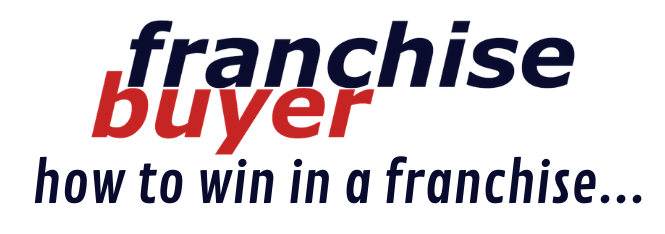August 26, 2019
The workspace revolution is here.
“We’re the world’s largest provider of flexible workplace solutions, whether you call that co-working or service offices.”, describes Damien Sheehan, Country Head of International Workplace Group (IWG).
Regus, an IWG brand, is leveraging their experience in operating 3,300 workspace locations globally to franchise the model.
The shift towards flexible working is a trend well underway in Australia. The demand for flexible workspaces continues to grow as employers look for ways to reduce costs and importantly to attract talent in this new employee led revolution.
Regus is one company that is leading the charge when it comes to the workspace revolution. With the world’s largest network of workspaces and co-working spaces, Regus know the importance of flexibility to employees and the vast benefits to employers. “We call it a workspace revolution. It’s a real social movement. It’s an employee led movement, especially (with) the millennials.
They want to have flexibility in where they work, they want to dictate how they work, when they work and where they work.” says Damien. Regus was founded in 1989, and the first center opened in Brussels by current CEO and founder, Mark Dixon. As Damien says, “He’s really the pioneer of this industry, locally and globally.” The majority of the 3,300 centers globally are company owned, with Damien believing that the move into franchising is the “next frontier” in the space.

Technology is playing a big role
Technology has been one of the largest enablers of flexible working, especially in this time where the millennial generation are digital early adopters who have grown up connected to the cloud. The expectations of modern employees are that they can lean on such technology. Technology means they can be mobile. Gone are the days of daily 2 hour (or more) commutes and employees that are tethered to a desk.
Work life balance is now a key expectation for any employee. Not just the millennials either, with older generations looking to delay retirement and work longer if it means avoiding a long daily commute.

Business owners are benefiting
It’s not just the employees that are benefiting from this movement. According to Damien, “For business owners, there’s a number of reasons why they like flexible working. So, one is they reduce costs. The latest workplace survey, which we do, it’s the largest workspace survey globally, says that in any given week up to 40% of the employees are actually working remotely. So, if they can cut down on that real estate cost, provide their employees opportunities to work closer to home, improve employee happiness, it’s a win-win both on the top line and the bottom line.”
Flexible workplaces provide employers with vast strategic benefits too. Employees can be set up easily in new markets (or removed from them) quickly, without the need for long term leases or hefty relocation costs.

Global study
At the start of 2019, IWG undertook a global study to establish the importance of flexible working. The report collected insights from 18,000 professionals across 96 countries.
Here are some of the key findings;
- 80% said when faced with two similar employment offers, they would turn down the one that didn’t offer flexible working,
- 50% of employees globally are working outside of their main office headquarters for at least 2.5 days a week,
- 85% confirm that productivity has increased in their business as a result of greater flexibility,
- 65% of businesses say flexible workspace reduce CapEx/OpEx, help manage risk and consolidate their portfolio,
- 80% stated that enabling their company’s employees to work from anywhere helped them recruit and retain top talent (64% in 2016),
- 82% stated flexible working helps them create a presence in new markets,
- 73% stated it helps them mitigate risk,
- 83% believe flexible working helps their business maximise profits (compared to the 67% that said it improved sales in 2016)
The findings (available HERE https://www.iwgplc.com/global-workspace-survey-2019) make it clear that flexible working is not so much a ‘perk of the job’, but an essential and expected part of the modern workplace.
Who is attracted to a flexible workspace business?
When it comes to what attracts franchise investors, Damien explains “They liked the flexible workspace industry… once they select the property, once they fit it out and then they start to fill it up, they’re not relying on the doors having to turn every couple of minutes for someone to come in and buy a gym membership or a donut or a sandwich. You get the customers in, they lock in their office for a month, three months, six months, two years, and as long as they really love those customers and look after them well it’s a highly generative cash business. So, there’s that surety, look after them and you’ve got customers for a long time.”
Further according to Damien, “...why they bought in is we’ve been in the business 30 years, we’re a listed organisation, so we’re fiscally really responsible and they see the growth that’s about to come.”
Ultimately, Regus is a property services business. With a large back office and search engine and lead based tool at their disposal, Regus help their franchise partners decide on locations based on the demographics and the demand in that area.

Damien is excited about the future of flexible working and the enormous benefits to Australians. “Given we’re a service-based business, we’re right at the pointy end of the service industry. We’re just looking for people that ideally have run service based businesses before, they understand what it really means to love your customers. If you get great people delivering great service quality, typically you have loyal customers and then a pretty profitable business.”
Regus are also getting franchise enquiries from existing property owners looking to increase the yield on their assets. By dropping in a Regus franchise and running it as a separate business, those with property portfolios are looking to use this model to increase their returns.
The workspace revolution isn’t coming, it’s here. Businesses that are progressive and looking to future-proof themselves will already be taking steps to evolve, and they will certainly reap the benefits.
















